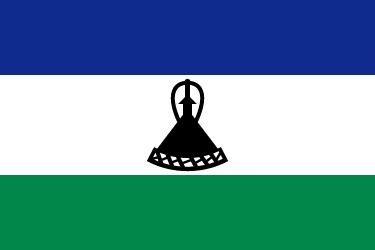Kingdom of Lesotho
Background
Lesotho is a State Party to a number of supranational courts. At the international level, Lesotho was among the first States Parties to the International Criminal Court (ICC). The country has reiterated its support for the ICC, even after a few African countries announced their intention to withdraw from the Court and the AU adopted a strategy for a mass withdrawal. Since 2003, it has also been a member State to the African Court on Human and Peoples’ Rights (ACrtHPR), though no case has been instituted against the country to date. Lesotho has, however, been named as one of the initiators of the idea to suspend the Southern African Development Community (SADC) Tribunal in 2010 showing at least, some level of dissatisfaction with the Tribunal. Lesotho has yet to sign the Malabo Protocol.
Treaty ratification Process
The Constitution of Lesotho does not specify which branch of government ratifies international agreements. But the executive power is vested in the King, who exercises this power through various bodies of the government. According to the Government Proceedings and Contracts Act No. 4 of 1965, agreements made with other states or international organizations are signed and executed by the King, after consultation with the Ministry of Foreign Affairs and the Cabinet in general. Therefore, ratification of the Malabo Protocol is likely possible through executive action conducted without the involvement of the other branches of Government. In theory, Lesotho is a dualist state. Dualist countries consider international law and domestic law as two separate legal systems. Hence, for international law to be applied in domestic courts, an Act of Parliament needs to be enacted. However, in practice, the highest Court has recognized the applicability of international instruments yet to be domesticated in Molefi Ts’epe v The Independent Electoral Commission and Others, particularly when it human rights obligations are at stake.
State of legislation on International and transnational crimes
The core international crimes, namely genocide, crimes against humanity, and war crimes, are defined and criminalized in the Penal Code of Lesotho. There are, however, no records of prosecutions of international crimes within Lesotho. The national legal framework of Lesotho also covers transnational crimes that would fall under the expanded jurisdiction of the African Court, including money laundering, corruption, trafficking in persons, trafficking in drugs, and trafficking in hazardous wastes. These national provisions are highly similar to their Malabo Protocol counterparts. Unconstitutional change of government is partially criminalized in the Penal Code. Lesotho has, however, no offence of piracy, aggression, mercenarism, or illicit exploitation of natural resources. Reports indicate that widespread corruption has penetrated the whole state apparatus, making corruption one of the most challenging crimes for the state.
Human Rights treaty signing and ratification trends
Lesotho has ratified almost all of the crime-related and human rights treaties adopted under the auspices of the UN and AU. The average amount of time it takes Lesotho to ratify UN treaties (28 months), while the same process takes 18 months for AU treaties. This means that unlike the case of most African countries that are relatively much quicker to ratify UN treaties than AU treaties, the opposite is true for Lesotho.
AU Judicial bodies membership

